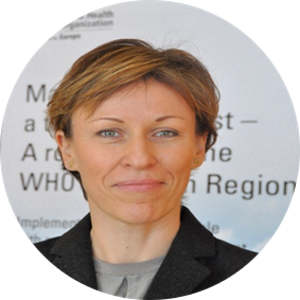
Kristina Mauer-Stender graduated from Strasbourg, France, in 1996 with a Masters in International Public law and Human Rights Comparative law. She joined the WHO in 2003, starting out as Technical Officer of the Tobacco Control Program at the WHO Regional Office for Europe in Copenhagen, Denmark. After several successful years, Kristina is now the Program Manager where she advises policy makers from health and other key sectors on tobacco control policies and strategies in line with the WHO Framework Convention on Tobacco Control (FCTC), existing international evidence and good practices.
She is also responsible for providing advise to Health Ministries along with other inter-sectoral partners for enhancement of their capacities to effectively implement the WHO Framework Convention. Kristina works daily with policy makers and other cross-societal partners in around 25 countries in the European Region, occasionally also with 53 countries through regional meetings and consultations. She is also leading the work of the WHO European Office on the vision of the tobacco-free European Region which is a follow-up to the Ashgabat Declaration from 2013 and the Roadmap of actions to strengthen the implementation of the FCTC in the European Region 2015-2025, commitment of 53 Ministers of Health from September 2015.
Geoffrey T. Fong is a Professor of Psychology and Public Health at the University of Waterloo, and Senior Investigator at the Ontario Institute for Cancer Research. Dr. Fong is the Founder and Principal Investigator of the International Tobacco Control Policy Evaluation Project—the ITC Project—a research consortium of over 150 researchers across 29 countries, covering over two-thirds of the world’s tobacco users. Dr. Fong has served as an expert for the WHO and for many countries across a broad range of tobacco policy domains, including health warnings, smoke-free laws, additives and flavourings, and plain/standardised packaging. Dr. Fong was an expert for Australia and Uruguay in their successful defenses of tobacco control policies that were challenged via trade treaties. Among Dr. Fong’s awards are a 2013 WHO World No Tobacco Day Award, a 2015 Luther L. Terry Award for Outstanding Research Contribution, the 2017 Policy Impact Award from the American Association for Public Opinion Research, and the 2019 John Slade Award from the Society for Research on Nicotine and Tobacco. He is a Fellow of the Royal Society of Canada and the Canadian Academy of Health Sciences.
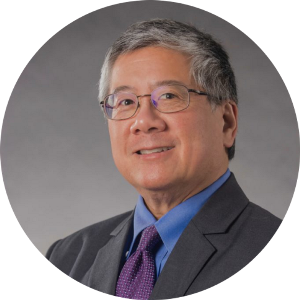
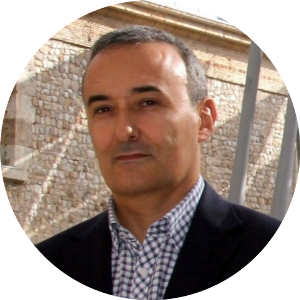
Ángel López-Nicolás (B.Sc. M.A. PhD.) is currently a Professor of Economics at Universidad Politécnica de Cartagena. Within the interaction of public and health economics, his work focuses on the economics of smoking and of tobacco control. His research in this area ranges from the economic evaluation of prevention policies to the design of tobacco taxation and has been published in the main field journals (Tobacco Control, Nicotine and Tobacco Research, European Journal of Health Economics etc.). His engagement in tobacco control policy is currently centred on the provision of and access to cessation services through the health care system, the revision of the EU Directive on the Taxation of Tobacco Products and the alignment of domestic tobacco taxation with public health objectives within EU Member States.
Ute Mons heads the Cancer Prevention Unit and the WHO Collaborating Centre for Tobacco Control at the German Cancer Research Center (DKFZ) based in Heidelberg, Germany. She holds an M.A. in Sociology and Economics, and a PhD in Epidemiology and Public Health from the University of Heidelberg. She has co-authored more than 100 research publications, mostly in her main research areas tobacco control, cancer prevention, and chronic disease epidemiology. Ute Mons participates in several committees in Germany to promote public health and tobacco control. In 2017, she was awarded one of the ECL ECTOH Young Professional Awards recognizing her contribution to tobacco control.

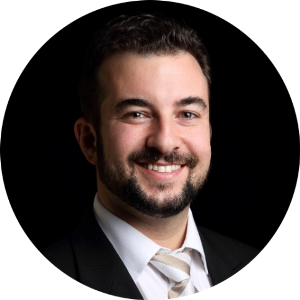
Constantine Vardavas (MD, RN, MPH, PhD, FCCP) is a medical epidemiologist with a specific postgraduate training at an MPH, PhD and postdoc level on tobacco product regulation and science. Dr. Vardavas has been the PI or co-I on a number of tobacco regulatory grants at an international level, and is experienced in organizing and implementing large public health initiatives and European Commission funded projects. He is an internationally recognized expert on tobacco product ingredients and additives, the electronic reporting of tobacco products, and European public health initiatives. For his efforts he was awarded the American Cancer Society “Luther L. Terry” Young Pioneer Award in 2018. Dr Vardavas is also an Adjunct Associate professor of Medicine at Mayo Clinic, USA and a Lecturer at Harvard University.
Xisca Sureda (BPharm, MPH, PhD) is an assistant professor of Epidemiology and Public Health in the Department of Surgery, Medical and Social Science at Alcalá University. Research associate at Social and Cardiovascular Epidemiology Research Group (EPISOC) at the Alcalá University and adjunct researcher of the Tobacco Control Unit of the Catalan Institute of Oncology. Dra. Sureda’s main areas of research include tobacco and alcohol epidemiology, and social epidemiology. Her research lines have been focused on the evaluation of the impact of tobacco smoke free policies on people attitudes and behavioral changes, smoking patterns and second-hand smoke exposure. She is the Principal Investigator of two funded research projects in Spain to study how the tobacco and alcohol urban environment relates with smoking and drinking behaviors, respectively (https://hhhproject.eu/). She is a member of the tobacco and alcohol working group in the Spanish Society of Epidemiology.


Bela Amalia (ICO-IDIBELL, University of Barcelona) is a doctoral researcher from Indonesia who receives grant from La Caixa INPhINIT Fellowship programme pursuing her doctoral degree at the Tobacco Control Unit of ICO. She is involved in the TackSHS project and her main research focus is second-hand exposure to aerosols from electronic cigarettes in Europe. She served as a medical doctor in public hospital and clinic in Indonesia and has experiences in managing public health intervention programmes. She completed her bachelor and professional Degree in Medicine from Universitas Indonesia (2014) and Master of Public Health in Imperial College London (2017). She is now pursuing a PhD degree at Universitat de Barcelona.
Eli Henderson (ASPB, Pompeu Fabra University), BSc Human Biology (2016) and MPH (2018) from the Universitat Pompeu Fabra, is a predoctoral researcher at the Evaluation and Intervention Methods Service of the Public Health Agency of Barcelona, and the Biomedical Research Centre network for Epidemiology and Public Health (CIBERESP). Elisabet has conducted research on the effects of traffic-related air pollution (TRAP) exposure and is currently researching secondhand tobacco smoke exposures in outdoor settings in Europe.

Nuria Matilla (international University of Catalonia), is Master in Public Health by the University Pompeu Fabra (Barcelona) and holds a bachelor in Biomedical Sciences by the University of Barcelona. She is currently a PhD Candidate at the Group of Evaluation of Health Determinants and Health Policies, at UIC Barcelona. She is studying the precarious employment conditions in Europe and their relation with the health status, sick leave and exposure to risks at workplace. She has been involved in the Spanish INMA Birth Cohorts studying the endocrine disruptors (PFAS) and their association with the metabolic outcomes in pregnant women. Also, she has been co-researcher of two projects; “Pattern of use, acceptability and risk perception of electronic cigarettes: prospective study of cohorts with biomarkers” conducted in Barcelona, and “Health status of Spanish Workers” conducted in Spain with the collaboration of Medycsa. Moreover, she has studied the non-intentional injuries in Mozambique with data obtained using the WHO STEPwise approach to surveillance (STEPS).
Roberto Valiente (University of Alcalà) is geographer by training. He currently studies his PhD on Geographic Information Technologies, which is funded by a predoctoral fellowship in the University of Alcalá. His studies are based on the application of Geographic Information Systems on the tobacco research. His work is focused on the analysis of the spatial distribution of the tobacco points of sales and their compliance with the local regulations, and the visibility of smokers and cigarette butts throughout the public spaces. He was granted to present his findings in the past XVII World Conference on Tobacco or Health, in Cape Town (South Africa). Currently, Roberto is part of the Social and Cardiovascular Epidemiology research group of the University of Alcalá and the ERC funded Heart Healthy Hoods project, which studies how the physical and social environment, and in particular the tobacco environment, affects population health.

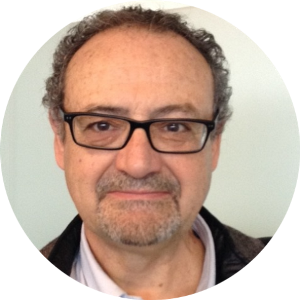
Joan-Ramon Villalbi, MD, PhD, MPH is a graduate from the University of Barcelona Medical School (1979) where he also got his Doctoral degree (1990). He obtained a Master’s degree in public health from Yale University (1983). He has worked in the management and evaluation of programs and services in public health and primary health care for different agencies. Currently he is head of Quality and Processes in the Agència de Salut Pública de Barcelona, the city Public Health Agency. His research experience concentrates in the evaluation of health policies, programs and services, with over 220 publications listed in Medline. His professional interests include program evaluation and developing quality management in the field of public health services. He is an associate professor of the Bloomberg School of Public Health and of the Master’s program of public health of the Pompeu Fabra University since 2005-06.
Member of the Editorial Council of Health Promotion International, Adicciones and Atencion Primaria, and of the Experts Committee of Medicina Clinica, he has served in the Boards of the European Network for Smoking Prevention, the Societat de Salut Publica de Catalunya i Balears (of which he was President), the Societat Catalana d’Atencio Primaria, the Comite Nacional de Prevencion del Tabaquismo (the coalition of smoking prevention organizations in Spain, of which he was President) and the Sociedad Espanola de Salud Publica y Administracion Sanitaria, where he is the current President. He has been a member of the Spanish National Board of the medical specialty of Preventive Medicine and Public Health for the period 2009-14. Over the years, he has been advisor for the World Health Organization, the Ministry of Health of the Spanish Government and the Health Department of the Catalan Government, for which he currently chairs the Advisory Council on Smoking.
Marcela Fu (BSc, PhD) is an Associate Researcher of the Tobacco Control Unit at the Catalan Institute of Oncology (ICO) in Spain since 2004. She’s a member of the research group on Cancer Prevention and Control at the Bellvitge Biomedical Research Institute (IDIBELL) and member of the Tobacco Working Group of the Spanish Society of Epidemiology (GTt-SEE). Her main area of research is tobacco epidemiology and control, particularly the evaluation of the impact of smoke-free policies, the monitoring of the tobacco epidemic, the study of smoking patterns and the measurement of passive exposure to tobacco smoke and electronic cigarettes. She has been involved in several national and international competitive and non-competitive research projects.
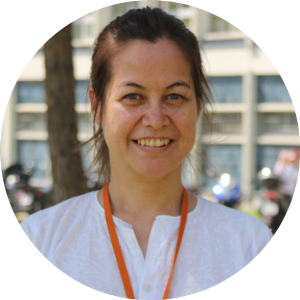

Carmen Cabezas (MD, PhD) studied medicine at the University of Barcelona and specialized in Family medicine as well as in Preventive Medicine. She has been involved in several research and training programmes in Primary Health care and was the Director of Research at the Fundació Jordi Gol I Gurina. She is the Deputy Director Genearal of Health Promotion at the Department of Health of the Generalitat de Catalunya. Dr. Cabezas has worked in health promotion and control of risk factors for chronic diseases, with special emphasis in tobacco control.
Jose M Martínez-Sánchez is an Associate Professor and Epidemiologist of the Universitat Internacional de Catalunya, responsible of the Public Health, Epidemiology and Biostatistics Unit and head of Group of Evaluation of Health Determinants and Health Policies. He is also Adjunt Research of the Tobacco Control Unit of the Catalan Institute of Oncology. Among his main areas of research are including tobacco control policies, measuring secondhand smoke exposure by questionnaire and biomarkers, and passive exposure among children. He has written more than 100 articles in peer reviewed journals and he has directed five doctoral theses.
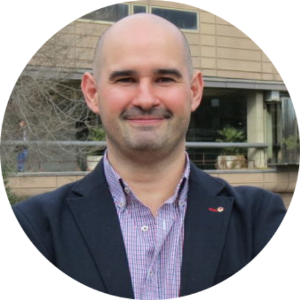
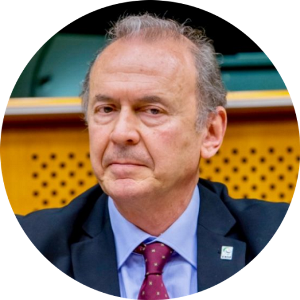
Francisco Rodríguez is medical Doctor, Univ. Zaragoza. Specialist in Dentistry, Univ. Complutense, Madrid. Magister in Tobacco Control, Univ. Cantabria. President of CNPT (National Committee on Tobacco Control), 2011 – 2015.
President of the European Net for Smoking Prevention (ENSP), 2015 – nowadays Vicepresident of the Council of European Dentists (CED), 2008-2011. Board member of the Spanish Society of Tobacco Management and Control Specialists (SEDET), 2007-10. General Secretary of Spanish Dental Association, 2006-2010. Associated professor in the Magister in Tobacco Dependence Management, Univ. of Cantabria and Sevilla. Author of different guides on smoking cessation for dentistry professionals.
Lobby work with Spanish parliamentarians, union representatives and journalists for the latest Spanish Tobacco Law (2010) and its maintenance. Lobby work with Spanish MEPs for the latest Tobacco Products Directive (2014)
Mª José López has a PhD in Public Health and Methodology of Biomedical Research and she works at the Evaluation and Intervention Methods Service of the Public Health Agency, Barcelona. She is the head of the Evaluation of Public Health Programs and Policies research group of the Biomedical Research Centre Network for Epidemiology and Public Health, also certified as a consolidated research group by the Agency for Management of University and Research Grants. Her main area of interest is the evaluation of public health interventions. She has been involved in national and international research projects, and she has more than 90 papers published in scientific journals. She is also associate professor at the University Pompeu Fabra. Secondhand smoke exposure assessment has been one of her main areas of research, having a number of research projects and scientific publications on this topic.


Kristina Mauer-Stender graduated from Strasbourg, France, in 1996 with a Masters in International Public law and Human Rights Comparative law. She joined the WHO in 2003, starting out as Technical Officer of the Tobacco Control Program at the WHO Regional Office for Europe in Copenhagen, Denmark. After several successful years, Kristina is now the Program Manager where she advises policy makers from health and other key sectors on tobacco control policies and strategies in line with the WHO Framework Convention on Tobacco Control (FCTC), existing international evidence and good practices.
She is also responsible for providing advise to Health Ministries along with other inter-sectoral partners for enhancement of their capacities to effectively implement the WHO Framework Convention. Kristina works daily with policy makers and other cross-societal partners in around 25 countries in the European Region, occasionally also with 53 countries through regional meetings and consultations. She is also leading the work of the WHO European Office on the vision of the tobacco-free European Region which is a follow-up to the Ashgabat Declaration from 2013 and the Roadmap of actions to strengthen the implementation of the FCTC in the European Region 2015-2025, commitment of 53 Ministers of Health from September 2015.